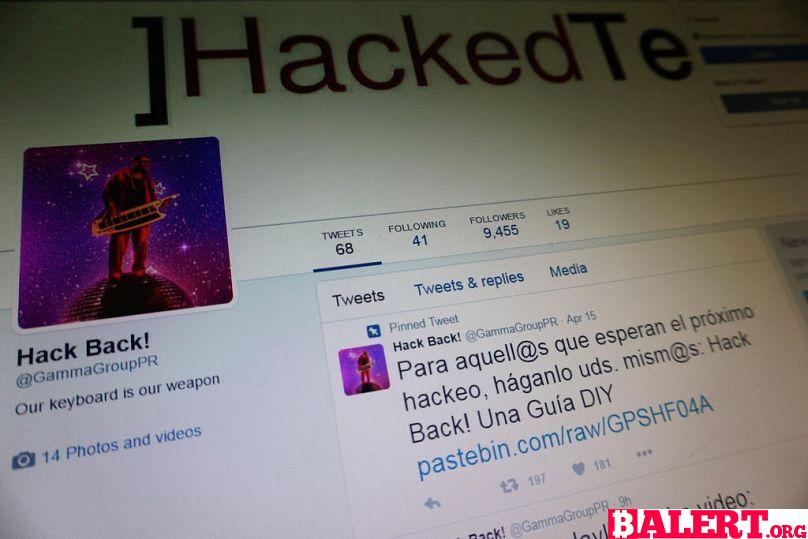World
The Complex Landscape of Cyber Arms Control
Explore the intricate dynamics of cyber arms control, examining the challenges, strategies, and international efforts to manage the threats posed by cyber weapons in an increasingly interconnected world.

As our reliance on cyberspace grows, so do the accompanying challenges and risks, particularly in the military domain. The advent of increased cybersecurity measures and the emergence of cyber diplomacy have become essential in navigating this intricate terrain. The discussion surrounding the militarization of cyberspace has gained prominence, particularly in light of modern conflicts where cyber operations play a pivotal role. A striking example of this is the ongoing war in Ukraine, which exemplifies how military conflicts now extend into the digital realm.
Historically, arms control has been critical in mitigating military escalation, but the unique characteristics of cyberspace present significant hurdles in establishing effective and verifiable measures for cyber arms control. A recent analysis conducted in collaboration with colleagues from the Technical University of Darmstadt sheds light on several key obstacles that hinder progress in this area.
Defining the Cyberweapon Dilemma
One of the foremost challenges in establishing arms control in cyberspace is the absence of precise and uniform definitions for key concepts. This issue is particularly pertinent when considering what constitutes a ‘cyberweapon.’ Traditional definitions of weapons do not adequately apply to the nuances of cyberattacks, which serve as the essence of what many consider a cyberweapon. Cyberweapons typically manifest as data and knowledge designed to compromise the integrity, availability, or confidentiality of an IT system without the consent of its owner. Some experts argue that the notion of a cyberweapon is inherently flawed, as the term ‘weapon’ implies a kinetic or physical use. While cyberattacks can exploit technological vulnerabilities and result in tangible consequences, this ambiguity complicates the establishment of a clear framework for a cyber arms treaty.
Furthermore, the tools and technologies associated with cyberattacks evolve at an astonishing pace. By the time regulations are drafted and agreed upon, the technology may advance beyond the scope of those regulations. For instance, many commonly used devices, such as computers and USB drives, serve both civilian and military purposes, making it impossible to delineate a definitive boundary between these use scenarios. Unlike traditional arms, which can be outright banned—such as landmines or nuclear weapons—there is no feasible way to impose broad bans on ubiquitous technologies like USB sticks or computers.
Challenges of Dual-Use Technologies
- The dual-use nature of many cyber instruments complicates regulation, as tools intended for cyber defense or espionage can also be repurposed for malicious attacks.
- This dual-use aspect introduces complexities that are distinct from previous arms control treaties.
Verification: A Major Hurdle
Establishing suitable verification mechanisms for arms control in cyberspace is one of the most significant obstacles. Unlike traditional weapons, cyberweapons cannot be easily quantified or categorized for regulation. The nature of cyberweapons allows for infinite replication and global sharing without any associated costs. For example, simply deleting a piece of malicious code from a device does not guarantee its removal, as it may reside in backup systems or remain accessible elsewhere on the internet.
This reality intensifies the challenges of creating effective verification mechanisms, as they would need to be remarkably intrusive. Many nations may be unwilling to engage in such intrusive verification processes due to concerns about exposing their own cyber defenses and vulnerabilities, which could potentially be exploited for espionage. However, while attribution—the process of identifying the actors behind cyber operations—was once deemed too complex, advancements in this area are making it increasingly feasible. This could serve as a foundation for sanctioning the use of cyberweapons rather than the weapons themselves.
The Rapid Evolution of Cyber Technologies
The swift evolution of cyberattack tools and technologies often outpaces regulatory efforts. By the time any regulation is established, the technology may have already progressed beyond its intended scope. Cyberattack code is typically based on ongoing software developments tailored for specific targets, leading to rapid changes and variations. Future cyberattacks are likely to differ significantly from past incidents, rendering traditional regulatory measures inadequate.

- For instance, recent events have highlighted the necessity for adapting regulations to keep pace with technological advancements.
- The private sector plays a crucial role since most cyberspace infrastructure is privately owned, making their involvement essential for effective arms control.
Focusing on Malicious Actions
Ultimately, political will is vital for establishing arms control measures in cyberspace. States, recognizing the strategic value of cyber capabilities, may be reluctant to comply with treaties that could limit their operational advantages. The current geopolitical climate further complicates efforts to achieve widespread agreement on these complex issues.
Analysis of literature and discussions with experts indicate that conventional arms control measures cannot be directly applied to cyberweapons. Instead, attention should shift towards prohibiting specific malicious actions. This approach allows for the development of agreements that can adapt to technological advancements and the dual-use nature of cyber tools.

Since 2015, international negotiations within the United Nations (UN) have produced 11 norms aimed at promoting responsible state behavior in cyberspace, focusing on limiting state actions and defining positive obligations. However, these norms remain voluntary and non-binding, leading to frequent violations. The challenge lies in transforming these norms into binding commitments and holding states accountable for their malicious cyber activities.
Attribution plays a crucial role in this context, as it involves publicly assigning cyber operations to specific actors based on evidence. Once considered too complex, it is now increasingly achievable and could serve as a basis for imposing sanctions for the use of cyberweapons rather than the weapons themselves. Pursuing this avenue could yield creative alternatives and solutions for arms control in cyberspace, paving the way for potential international mechanisms or institutional frameworks to address these pressing challenges.
Helene Pleil is a Research Associate at the Digital Society Institute (DSI) at ESMT Berlin.
At Euronews, we believe all views matter. Contact us at view@euronews.com to share your insights and join the conversation.
World
Dominique Pelicot Testifies in Harrowing Rape Trial
Join us as Dominique Pelicot courageously testifies in a harrowing rape trial, shedding light on the complexities of trauma and justice. Her powerful story raises crucial questions about the legal system and the importance of support for survivors.

Dominique Pelicot Takes the Stand in Shocking Rape Trial
In a courtroom drama that has captivated France and garnered international attention, Dominique Pelicot, the man at the center of a harrowing rape trial, finally addressed the court. With tears streaming down his face, he recounted how his wife had been instrumental in helping him cope with a tumultuous past marked by trauma. He revealed that he had endured a sexual assault at the tender age of nine while hospitalized, and he also witnessed a gang rape during his teenage years while working as an apprentice electrician on a construction site.
“She didn’t deserve this, I acknowledge that,” Mr. Pelicot stated, his voice barely audible as he struggled to convey his emotions. The gravity of the situation weighed heavily on him, and the courtroom fell silent, straining to catch his every word.
Now 71 years old, Mr. Pelicot faces serious allegations of drugging his wife, Gisèle Pelicot, whom he has been married to for half a century, over a span of nearly ten years. Prosecutors contend that he used drugs to render her comatose, allowing him to rape her repeatedly. Furthermore, authorities allege that he went so far as to invite numerous men into their home, facilitating a nightmarish scenario where they, too, engaged in the assault of his wife.
Overall, 51 men, including Mr. Pelicot, are on trial concurrently, primarily facing charges related to the aggravated rape of Ms. Pelicot. Among them, one individual has already pleaded guilty to similar crimes, admitting to drugging his own wife to assault her and inviting Mr. Pelicot to partake in the horrific act while she was incapacitated.
Mr. Pelicot’s unexpected testimony came after a tumultuous start to the trial. Just a week in, he was stricken with severe health issues that forced him to miss four consecutive days in court. The head judge ultimately decided to postpone proceedings, as Mr. Pelicot was diagnosed with kidney stones, a kidney infection, and prostate complications, adding yet another layer of complexity to this already harrowing case.
World
Meta Bans Russian State Media Outlets from Social Media Platforms
Explore the implications of Meta’s decision to ban Russian state media outlets from its social media platforms. Understand the impact on information dissemination and the ongoing battle against misinformation in the digital landscape.

Meta Imposes Global Ban on Russian State Media Outlets
In a significant move, Meta Platforms, Inc., the parent company of Facebook, has announced the prohibition of Russian state media outlets, including RT (Russia Today) and Rossiya Segodnya, from all its social media platforms. The decision stems from the company’s concerns regarding the deceptive strategies employed by these media organizations to execute covert influence operations across the internet.
Meta made this announcement on Monday, emphasizing that the ban will be enforced worldwide across its various platforms, such as Instagram, WhatsApp, and Threads. The rollout of this ban is expected to take place over the coming days.
Statement from Meta
A spokesperson for Meta elaborated on the decision, stating, “After careful consideration, we have expanded our ongoing enforcement actions against Russian state media outlets. As a result, Rossiya Segodnya, RT, and other affiliated entities are now banned from our applications globally due to their involvement in foreign interference activities.”
For further insights into this development, watch the video in the player above.
World
Trump Recalls Alleged Assassination Attempt While Golfing
Explore Donald Trump’s chilling recollection of an alleged assassination attempt he experienced while enjoying a round of golf. Delve into the tense moments and his reflections on safety, fame, and the unpredictability of public life.

In a recent interview on the social media platform X, Republican presidential nominee Donald Trump recounted a harrowing incident he claims to have experienced while playing golf. Trump described how, during a peaceful Sunday morning round with friends, the tranquility of the day was abruptly shattered by the sound of gunfire in the air.
“It was a beautiful day, everything was just perfect,” Trump reflected. “Then all of a sudden, we heard shots being fired—probably around four or five in total.” He went on to explain that a Secret Service agent was the first to spot the suspect, who was allegedly armed with an AK-47, a powerful assault rifle.
“The agent saw the barrel of the weapon and immediately took action, returning fire at the barrel and aiming in the direction of the bushes,” Trump detailed. “I would have loved to have sunk that last putt, but we decided it was best to leave the scene promptly.”
Trump expressed his gratitude towards the agents and a vigilant civilian who aided in tracking down the suspect, who was eventually apprehended following a high-speed chase.
Suspect Faces Multiple Federal Gun Charges
The FBI has identified the suspect as Ryan Wesley Routh, accusing him of targeting Trump during his time at the golf club in West Palm Beach, Florida. According to an FBI report, Routh had allegedly hidden among the hedges of the golf course for an astonishing 12 hours. Authorities discovered an SKS-style assault rifle, a GoPro camera, and a bag of food at the scene.
The 58-year-old Routh is now facing two serious federal gun charges. If convicted on both counts, he could face a combined maximum sentence of 20 years in prison. Notably, neither of the charges is directly related to an assassination attempt. The first charge pertains to possessing a firearm despite a prior felony conviction, which carries a potential 15-year sentence, a fine of $250,000 (€225,000), and three years of supervised release.
The second charge involves possession of a firearm with an obliterated serial number, which could result in a five-year prison term, the same financial penalties, and also three years of supervised release. As the investigation continues, additional charges could be forthcoming.
While the motive behind Routh’s actions remains unclear, his digital footprint reveals strong political affiliations, particularly concerning issues surrounding Ukraine and China. Routh consistently expressed support for Ukraine across various social media platforms, even claiming to have orchestrated a recruitment scheme for international volunteers aiming to assist Ukraine in its fight against Russia’s invasion. This behavior has been denounced by Ukrainian soldiers and members of the International Legion, who disavowed Routh’s actions and motives.
-

 Business5 months ago
Business5 months agoThe Significance of Jackson Hole: A Central Banking Tradition
-

 Tech4 months ago
Tech4 months agoNew Leaks and Features About the Samsung Galaxy S25 Ultra
-

 Business7 months ago
Business7 months agoObituary: Dan Collins
-

 Article7 months ago
Article7 months agoCreative Design Applications Developed with Artificial Intelligence
-

 Business4 months ago
Business4 months agoBhutan’s Strategic Investment in Bitcoin: A New Era for the Himalayan Kingdom
-

 World4 months ago
World4 months agoThierry Breton Resigns: Impact on European Union Leadership
-

 Gaming4 months ago
Gaming4 months agoNew Details and Trailer Released for Dead Rising Deluxe Remaster
-

 Gaming4 months ago
Gaming4 months agoNew Details for Alan Wake 2 and PlayStation 5 Pro Announcement












